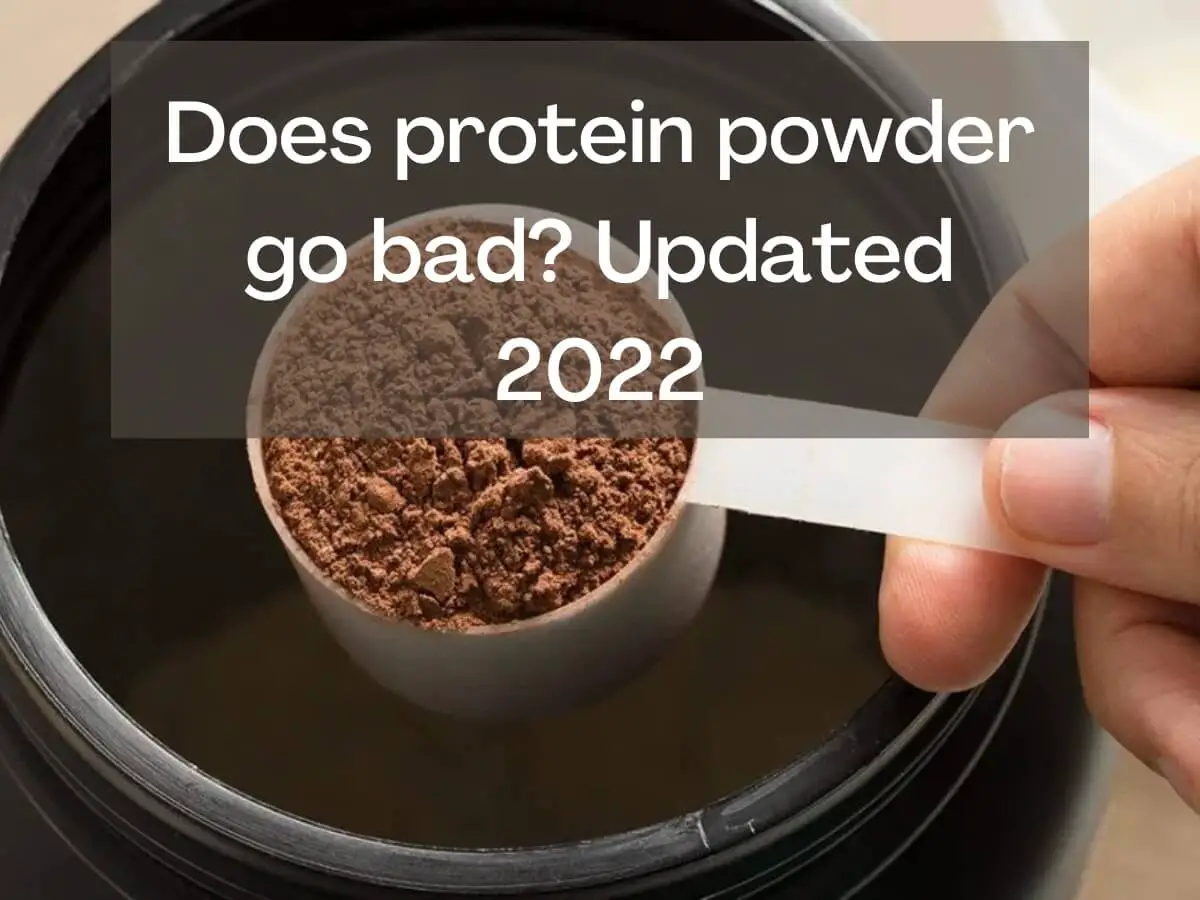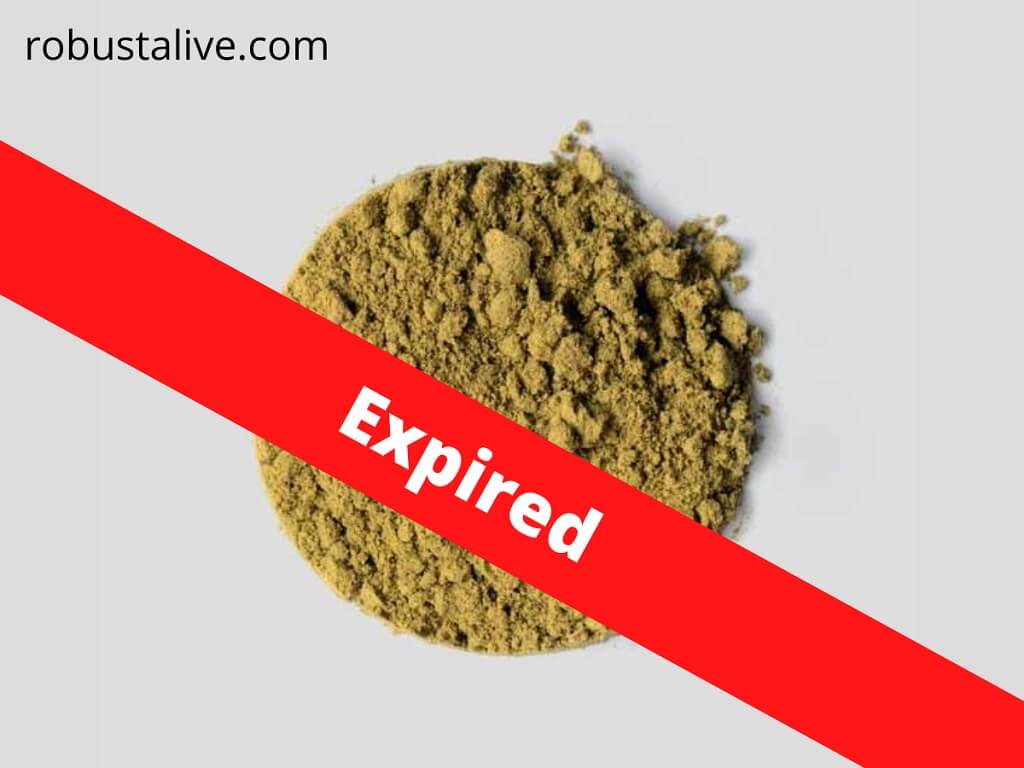Does Protein Powder Go Bad? Updated 2022

Among people concerned about their health, protein powders are a prevalent supplement. Nevertheless, you could be worried about its quality or safety based on how long that protein powder has been in your kitchen cabinet. Does protein powder go bad? This article explores whether protein powder expires and whether using it after the expiration date is safe.
Basics of protein powder
Protein powders are a practical and affordable approach to improving your protein intake. Although protein’s positive impact on muscle growth is well discussed, research still reveals other advantages of increased protein intake, such as fat reduction, blood sugar stabilization, blood pressure control, and bone health.
There are many different sources of protein powder, including milk, in the form of There are many other sources of protein powder, including:
- Milk in the form of whey or casein
- Egg white
- Soy
- Collagen
- Rice
- Pea
While most products only have one source of protein, other products may have protein from several sources to cut costs or change the absorption rate. For instance, some protein powders could have both casein and whey, two types of proteins with different rates of protein.
Various additional nutrients, including lipids, carbohydrates, vitamins, and minerals, are also present in protein powders. Additionally, they frequently have additives such as thickening agents to provide food with a creamier consistency and texture, natural and artificial flavors, flavor protectors, and enhancers.
Does the Protein Powder Expiration Date Matter?
Actually, no. According to Penn State University’s Bob Roberts, Ph.D., a dry environment inside the jug makes it practically difficult for bacteria to develop within the powder.
The same is true of plant-based protein powders. Therefore, you’re unlikely to become ill unless you store your canisters in a warm, humid location (like the restroom or your locker at the gym). Despite this, there are a few more things to look for to see if your protein powder is still bad.
Can expired protein powder make you sick?

Photo Credit: Robustalive.com
Use-by or expiration dates are not indicative of safety but quality, with the baby formula being the exception. Foods like protein powders have little moisture content, making them less likely to support bacterial development. If the product has been stored correctly, it is probably okay to use protein powder right after the expiration date, but as they age, protein powders can lose some of their protein content.
When stored at 70°F with 45–65% humidity, one study found that the amino acid lysine in whey protein reduced from 5.5 to 4.2 percent in 12 months. However, none of the chemicals many goods on the market, including lengthening their shelf lives, were present in the protein powder used in this study.
Protein powder may spoil before the stated expiration date, mainly if it is not kept in a cool, dry environment. One study, for instance, found that whey protein oxidation increased significantly when held at 113°F (45°C) for 15 weeks, resulting in the creation of several chemicals that alter the protein’s flavor.
Protein powders lose quality as a result of oxidation, which is the result of lipids and oxygen. Oxidation rates rise during storage. According to a study, oxidation is encouraged by high temperatures and grows tenfold for every 50°F (10°C) rise. A rotten odor, unpleasant taste, color changes, or clumping are indicators that protein powder has gone bad.
Regardless of the expiration date, drinking protein powder that exhibits one or more symptoms could make you ill, just like eating bad food would. It is advised to discard your protein powder if you see any signs that it has gone bad.
What Happens to Protein Powder After It Expires?
The muscle-building magic of protein powder does wear out after its expiration date. Maillard browning, a chemical process, is to blame: The amino acid lysine gradually disintegrates due to the protein’s reaction with sugar left over from the manufacturing process used to separate the whey from the milk.
The protein powder won’t be as complete if lysine is lost. It means that your powder will have less ability to create muscle.
How long does protein powder last?
The term “shelf life” describes how long food keeps its best quality after manufacture. Dietary supplement manufacturers are not required to mark their products with an expiration date.
However, many businesses voluntarily mark the manufacturing date with an expiration or “best by” date. In these situations, it is on to the producer to provide evidence to support the accuracy of the expiration date on their items.
Whey protein powders have a shelf life of about 12 months. In one study, researchers who used an accelerated shelf-life test discovered that it could last up to 19 months under typical storage circumstances, defined as 70°F (21°C) and 35 percent humidity.
A product is stored under stressful conditions, such as high temperature and humidity, as part of an accelerated shelf-life test to gauge and estimate its stability. Whey protein powders have a shelf life of 9 months at 95°F and extend to 18 months stored at room temperature, or 70°F with 45–65% humidity, according to the results of another study.
Although it is uncertain if other protein sources have a shelf life similar to that of whey protein, they probably do if they are stored in the same manner. In either case, most protein powders on the market have chemicals like maltodextrin, lecithin, and salt that extend shelf life and give them roughly two years.
How to tell if your protein powder is expired.
Although protein powder, when properly stored, does not go bad like meat and fresh food, it can still spoil. Protein powder has an expiration date on the container, just like any other packaged commodity. Use by, Best By, or Sell By are the three dates that typically occur.
Customers should interpret the “use by” date as the deadline by which the product should be consumed. Safety may be an issue, but quality is more critical here than safety. The “best by” date for customers specifies the last day the product should be used to ensure its quality and safety. Quality in this context refers to features like the protein powder’s flavor and color.
The “sell by” date specifies for retailers when a product should be offered for sale or taken off the shelf. It is safe to consume a product after the “sale by” date; the “sell by” date is not the deadline by which it must be consumed. Typically, a product’s shelf life extends for another third after the “sell by” date.
Can we extend the shelf life of your protein powder?
Unopened protein powder has a longer shelf life than opened protein powder, and protein powder stored in a calm, dry environment will keep its quality longer than protein powder stored in a hot, muggy environment. Use a dry scoop whenever possible, keep your protein powder in its original container, and never put it on top of the refrigerator.
How long does protein powder last after opening?
While the shelf life of each protein powder varies, most opened protein powders can be used for 12 to 14 months if stored correctly. Use your nose if you’re unsure. Throw something away if it smells terrible.
End words by the writer
What should you do if you discover a protein powder bottle a few months past the expiration date on the package? It is not rocket science. Start by examining the powder’s appearance and aroma. You should discard the powder since it can become damp or grow mold if any moisture gets inside it.
Granules may naturally form in the powder, but if they are dry, you may break them up with your fingers or a fork. Such clumps pose no threat at all. Make sure the smell is somewhat representative of how it typically smells. If the powder started to have a strange, odd, or sour smell, throw it away.
Frequently Asked Question (FAQ’s) About Does protein powder go bad?
Can protein powder be used after the expiration date?
Yes, it’s safe to utilize a protein powder that has expired. Protein powder is very low in danger of bacterial growth because it is a dry product. Both whey protein and casein protein fall under this.
How can you tell if protein powder is bad?
You won’t have much time to eat it if it’s past its expiration date before it spoils. If the date is too far off, throw it away. In addition, it isn’t good if the protein powder is yellow or brown. If you notice mold on your protein powder, it’s usually the wrong product.
Can I use 3-year-old protein powder?
Although protein powder can be used after the date indicated on the label, it may deteriorate. Always keep protein powder in a cool, dry place and watch for signs of deterioration like clumping or a rotten smell.
How can I tell if my whey protein is no longer good?
You can discover inkjet printing with the production date, expiration date, and batch code on the bottom or side of protein tubs. The dates should be 2 years apart because powdered items have a 2-year shelf life. The dates and batch code are displayed on the side in white on bottles of capsules, tablets, and soft gels.
References
https://www.healthline.com/nutrition/does-protein-powder-expire#shelf-life
https://www.menshealth.com/nutrition/a19547717/expired-protein-powder/
https://www.womenshealthmag.com/food/a28637043/protein-powder-expire/
https://www.asweetpeachef.com/does-protein-powder-go-bad/
https://www.gainful.com/blog/does-protein-powder-go-bad/
https://www.fitandwell.com/features/does-protein-powder-expire





